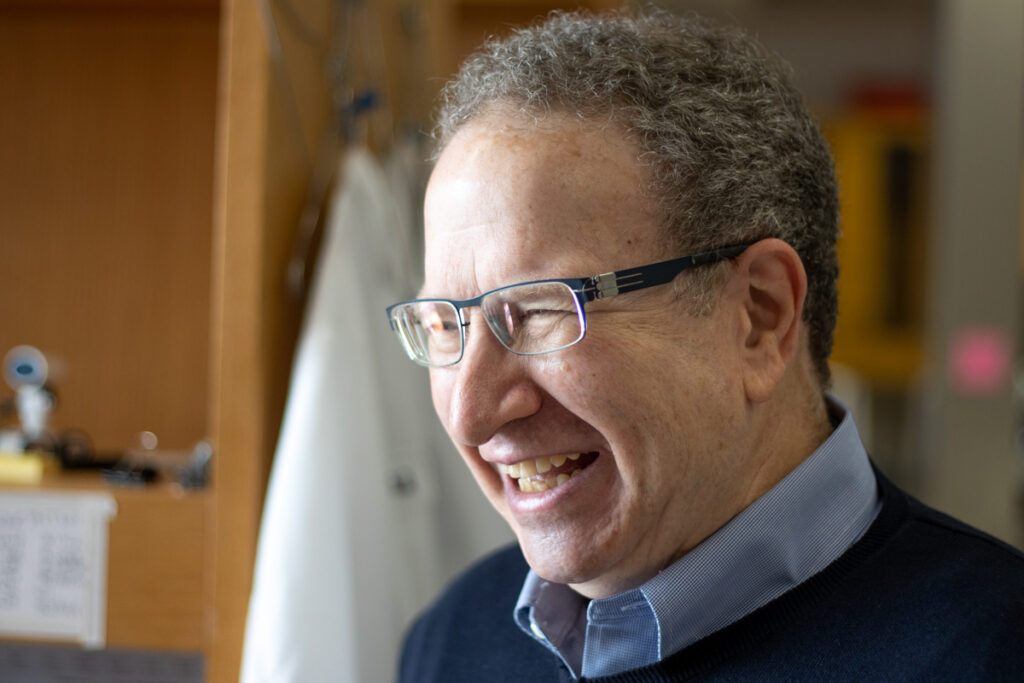I joined the Institute for Protein Innovation in November 2022, coming from a long term in executive leadership at The Jackson Laboratory. Trained in biomedical engineering, neuroscience and genomics, and with my own research interests in bioinformatics and computational biology, much of my career has involved mentoring team science collaborations targeted to ambitious goals.
For years now, biomedical research has been significantly driven by organizations advancing molecular biology, genetics and genomics. But most disease mechanisms manifest at the protein level, and thus proteins are both the predominant therapeutic targets and, increasingly, are novel therapeutic molecules themselves. Ironically, there are few major research institutes with a protein science focus.
Harvard Medical School professors Tim Springer and Andrew Kruse established IPI in 2017 to champion protein-based approaches. IPI will provide protein resources, conduct applied research in protein science and technology, and help train a new generation of biomedical researchers in those approaches. These three foci of the organization will enhance one another to achieve the greatest impact. And Springer’s philanthropy has transformed IPI again, thanks to his latest visionary gift. We can now grow the Institute — and its antibody platform — to take on more ambitious projects than are typical of traditional academic or industrial laboratories.
As IPI’s signature resource focus, our ability to engineer and distribute antibodies for research applications has grown significantly. We are deploying a strategy where we achieve efficiency by prosecuting sets of related antigens. We prioritize these sets based on their unmet medical need, their tractability and the availability of collaborators to assess their applicability.

This past year, IPI has focused on developing and preparing to distribute synthetic antibodies. We have recruited young talent who are experts in their protein-related domains and also function in a team environment. Our scientists have improved many aspects of IPI’s high-throughput platform, enabling the production of our first set of affinity reagents, targeting a family of proteins called integrins.
These transmembrane receptors are the molecular transducers of the body, sensing chemical and physical environmental cues and converting them into appropriate intracellular signals. Springer was one of the discoverers of this critical protein family. This year marked a peak moment for him as he, alongside Richard O. Hynes and Erkki Ruoslahti, won the prestigious Lasker Prize for elucidating the role of these vital protein complexes. As we prepare to release our first integrin antibodies, I am also pleased to announce that we have partnered with the nonprofit plasmid repository, Addgene, to help IPI sell and distribute these reagents beginning this autumn.
As part of IPI’s research focus, we are committed to providing information about where our antibodies will be most useful. We are building a team to test our antibodies in standardized but evolving applications. We also seek external collaborators to evaluate our candidate antibodies in novel research assays.
Our June 2023 IPI Surfacing symposium is a celebration marking the end of the Institute’s pilot phase and our emergence as a provider of high-quality research antibodies and a disseminator of protein science to the biomedical community. The Surfacing symposium will be the first of many IPI conferences and courses. Our goal is that, in the future, the biomedical research community will recognize our educational focus and come to value IPI-organized conferences and courses in protein science.
All of us at the Institute are proud to be part of this exciting, mission-driven organization, advancing our understanding of human biology and disease. The coming year will be a crucial one in demonstrating the success and potential impact of this endeavor. We look forward to you joining IPI in that effort.
Learn more about IPI’s current projects here, or reach Fasman at info@proteininnovation.org.
Read IPI’s 2022 annual report here.
About IPI
The Institute for Protein Innovation is pioneering a new approach to scientific discovery and collaboration. As a nonprofit research institute, we provide the biomedical research community with synthetic antibodies and deep protein expertise, empowering scientists to explore fundamental biological processes and pinpoint new targets for therapeutic development. Our mission is to advance protein science to accelerate research and improve human health. For more information, visit proteininnovation.org or follow us on social media, @ipiproteins.


